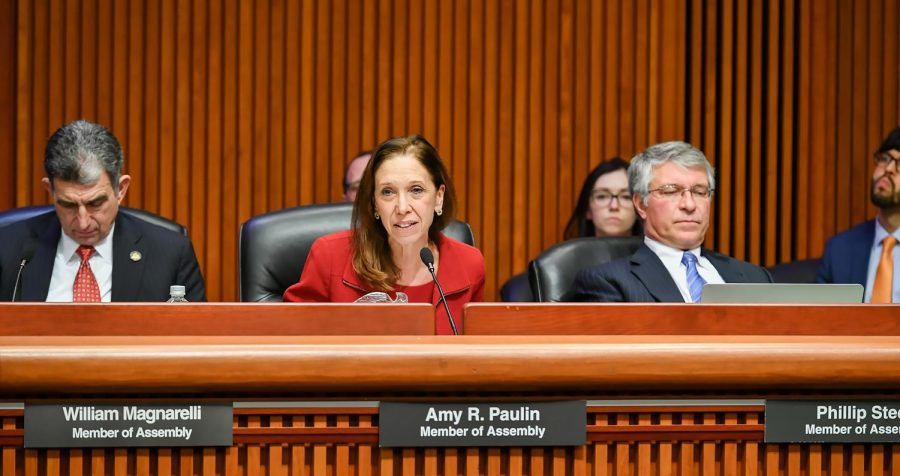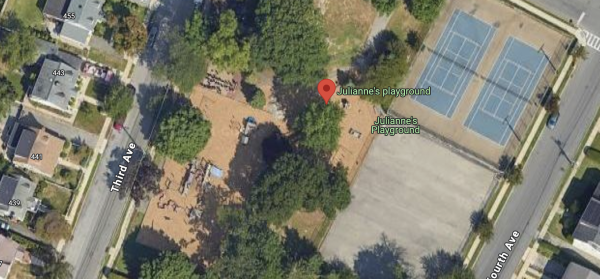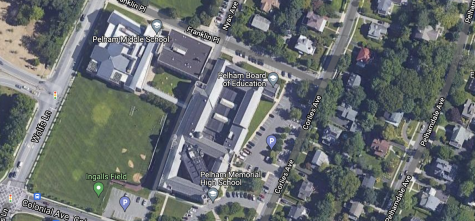Paulin: Federal appeals court ruling supports legal effort to overturn cap on SALT deductions
Editor’s note: This press release was provided by Assemblywoman Amy Paulin.
The federal Tax Cuts and Jobs Act of 2017 (the Act) eliminated the full deductibility of state and local taxes (SALT), and capped deductions at $10,000. This law disproportionately hurts Democratic states like New York, where residents’ state and local taxes often exceed $10,000. Last week a US Court of Appeals ruling brought the fight Assemblymember Amy Paulin has been leading against the SALT cap one step closer to victory.
In 2018 Paulin, who represents Pelham, authored and passed a law that allowed deductions for contributions to charitable reserve funds in order to give relief to residents who had just lost the SALT deduction. The law gave counties, local governments, and public school districts the option to give a real property tax credit of up to 95% of the amount of a resident’s monetary contribution to the reserve funds.
Later in 2018, however, the IRS issued regulations denying that a taxpayer who makes a contribution to a charitable reserve fund could receive a state or local tax credit. A subsequent IRS notice then announced that businesses would be entitled to a full deduction for their contributions, creating an arbitrary distinction between contributions made by businesses, whose full deductibility was preserved, and contributions made by individuals, which were not.
In response to the IRS’ regulations and conflicting positions on charitable reserve funds, Paulin formed and chaired a coalition of counties, cities, towns, villages, and school districts in New York, called the Coalition for the Charitable Contribution Deduction (3CD), and filed a letter with and testified before the Treasury Department and the IRS, requesting the withdrawal of the regulations denying a deduction for donations to charitable reserve funds.
In 2019, Paulin worked with the Village of Scarsdale to file Village of Scarsdale v. Internal Revenue Service, seeking to invalidate the IRS regulations. She has continued to take the lead role in the initiative, asserting that taxpayers should be entitled to the full charitable deduction for their donations to charitable reserve funds.
Last week the US Court of Appeals for the Second Circuit issued its decision in the constitutional challenge to the SALT cap brought by New York, New Jersey, Maryland and Connecticut in State of New York et al v. Mnuchin et al. The Court affirmed the US District Court for the Southern District of New York decision granting the federal government’s Motion to Dismiss. While the court found that the plaintiff’s constitutional argument lacked merit, it did agree that the plaintiffs had standing to challenge the law. This decision bodes well for the Scarsdale lawsuit and brings it one step closer to a win.
Village of Scarsdale v. Internal Revenue Service can be distinguished from the appeals court case because it does not challenge the SALT cap on constitutional grounds. Instead, it seeks to invalidate and set aside the IRS regulations on the grounds that they are invalid under the Administrative Procedure Act. Due to this more narrowly crafted challenge, along with the favorable finding of standing in the States’ case, Scarsdale’s case is likely to succeed on the merits.
“We are hopeful that the ruling in Mnuchin last week will bring our challenge to the regulations in federal court one step closer to a positive resolution for those negatively affected by the SALT cap,” said Paulin. “It is critically important that we take all of the actions we can to help minimize the impact to residents, many of whom are still struggling financially due to the pandemic. The establishment of charitable reserve funds to give a SALT deduction to individual residents would provide tax relief to many New Yorkers right now – at a time when they need it the most.”









